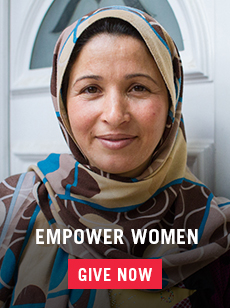
It was a few weeks back that I received an e-mail from a captain in the Pakistani military. His son, Mohammed, had a heart defect and he was looking for a way to save him. He was willing to travel anywhere and cross any border if it meant fixing Mohammed’s heart.
Is there anything you wouldn’t do for your son?
Other countries had offered to accept Mohammed for surgery, but the cost was high. Then he heard about the Remedy Missions taking place in Iraq and the opportunity for his son to be saved by the hands of Iraqi and American surgeons. Up until now, thousands or Iraqi children were sent outside Iraq to be saved in other countries, but a child hasn’t ever been brought into Iraq for this kind of surgery. Mohammed would be the first.

While other countries saw Mohammed’s surgery as another financial transaction, the Ministry of Health in Iraq removed every barrier that stood in their way and brought them to this Remedy Mission. Yesterday, I stood in the hallway talking with Mohammed’s dad and he brought up the name of our coalition, Preemptive Love. He started to share what that meant to him and his family and then he told me, “I believe that this act [preemptive love] is what we were created to do.” He went on to share how he’s been thinking about it and trying to understand how his life could reflect it even more.
We kept talking as his son was playing soccer in the hallway, and then it struck me in a whole new way just how much a single act of love can impact a life. The doctors in Iraq could have turned them away. They could easily have justified it with their own backlog of thousands of Iraqi children waiting in line for surgery. But they didn’t. They welcomed him in and received their very first international patient from outside Iraq.
Talking with the local doctors here, it’s obvious that this surgery has helped them change the narrative of healthcare in Iraq. For so long they’ve only been on the receiving end. They’ve always been the ones asking other countries to help their children. This was their chance to give back. Now they were able to even show their own people that, one day, Iraq can be a place where others come for help.
In a few hours, Mohammed will be the first international patient to be treated inside Iraq.
